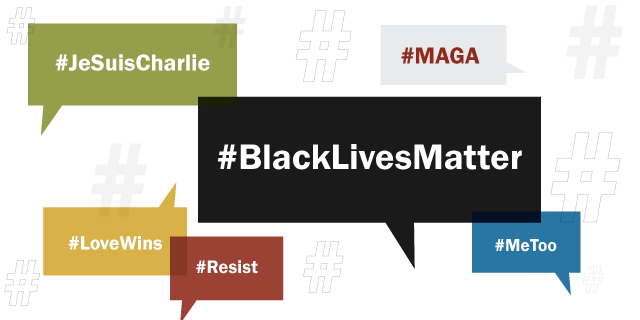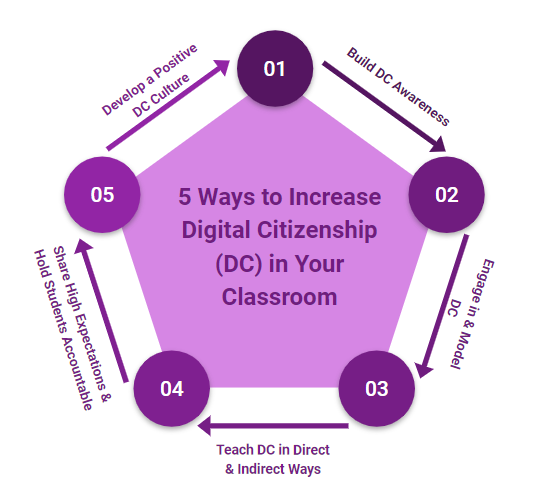Social media has an indisputable impact on how we conduct our daily lives in the digital age. Its influence is particularly notable in the domain of activism. Online social media activism has become a potent instrument for people and groups to promote social justice, bring about change, and increase awareness. Online social media activism’s capacity to magnify perspectives that may otherwise be silenced or disregarded is among its most fascinating characteristics. People can connect with a large audience, cross-regional barriers, and engage people from all walks of life using websites like Twitter, Instagram, and Facebook. Online activism is growing on social media, where it has shown to be a potent instrument for generating awareness. Educating the public about various social justice concerns can be accomplished by activists through sharing instructional materials, infographics, and articles on social media. Additionally, online activism promotes debates that question the status quo. Global movements generated by hashtags like #BlackLivesMatter and #MeToo have sparked debates and encouraged people to critically evaluate their own prejudices and opinions. These discussions promote mutual respect, empathy, and the need for change. Online social media activism builds online networks where people can find help, friendship, and empowerment. For marginalized groups that might experience exclusion and discrimination in their daily lives, these types of events offer a sense of belonging. People can obtain emotional support, offer advice, and exchange experiences through these networks.
Moreover, online social justice discussions can be beneficial but they can also be difficult because of the particular features of digital media. The question suggests the possibility of having meaningful discussions and idea exchanges about social justice issues using online forums, social media, or discussion boards. For these interactions, online platforms have a number of benefits. They offer an opportunity for many viewpoints to be heard, enabling people from all backgrounds and points of view to take part in debates. wider variety of perspectives and experiences are fostered by this inclusivity, enhancing the dialogue and fostering understanding.  However, it is crucial to be aware of the possible difficulties and drawbacks of participating in social justice discussions online. Effective communication can be hindered by anonymity, a lack of nonverbal indicators, and face-to-face engagement. Misunderstandings, incorrect interpretations, and even dislike may result from these variables. Online social justice debates can be successful if participants approach them with an open mind, respect for opposing points of view, and a desire to learn from others. To promote understanding and meaningful participation, it is essential to practice active listening, empathy, and polite discussion. Using reliable sources, and supporting claims with data, and stereotypes are crucial. In addition to ensuring that participants are informed, this helps maintain the conversation’s integrity.
However, it is crucial to be aware of the possible difficulties and drawbacks of participating in social justice discussions online. Effective communication can be hindered by anonymity, a lack of nonverbal indicators, and face-to-face engagement. Misunderstandings, incorrect interpretations, and even dislike may result from these variables. Online social justice debates can be successful if participants approach them with an open mind, respect for opposing points of view, and a desire to learn from others. To promote understanding and meaningful participation, it is essential to practice active listening, empathy, and polite discussion. Using reliable sources, and supporting claims with data, and stereotypes are crucial. In addition to ensuring that participants are informed, this helps maintain the conversation’s integrity.
As educators, it is our duty to serve as positive role models for online citizenship and to direct students toward the moral and ethical use of the internet. We must help students develop critical thinking, empathy, and a sense of social responsibility in addition to conveying knowledge and academic abilities. In accordance with Katia’s blog post, we have a duty to serve as active citizenship role models online, and IF we have students following us on social media, I wholeheartedly support her perspective. Students are acutely aware of what is going on around the globe, and they want to know that you are current and relevant on these topics. I do think that as educators, we have a responsibility to post, as long as I’m being responsible and engaging in meaningful participation. Teachers must serve as role models. We should have respectful and productive conversations, refrain from disseminating false information, and encourage empathy and compassion.  Children may be motivated to adopt these behaviors by seeing us use social media responsibly, behave appropriately online, and evaluate material critically. Additionally, we should actively participate in online discussions about social justice and equity. We demonstrate our dedication to tackling societal challenges and encouraging good change by sharing appropriate resources, taking part in online initiatives, and elevating marginalized voices. As educators, we are all aware that actions speak louder than words. By serving as an online role model for active citizenship, we encourage and teach our students to develop into responsible digital citizens who make worthwhile contributions to society and thoughtful choices in their online interactions.
Children may be motivated to adopt these behaviors by seeing us use social media responsibly, behave appropriately online, and evaluate material critically. Additionally, we should actively participate in online discussions about social justice and equity. We demonstrate our dedication to tackling societal challenges and encouraging good change by sharing appropriate resources, taking part in online initiatives, and elevating marginalized voices. As educators, we are all aware that actions speak louder than words. By serving as an online role model for active citizenship, we encourage and teach our students to develop into responsible digital citizens who make worthwhile contributions to society and thoughtful choices in their online interactions.
Tips for Modeling Active Citizenship Online:
- Encourage the creation of a welcoming, safe, and inclusive online learning environment.
- Include discussions about social justice concerns in the curriculum, and encourage students to conduct research, engage in in-depth analysis, and form thoughtful judgments.
- Promote critical thinking abilities by teaching students how to recognize and assess reliable sources of information.
- Encourage students to participate in respectful debates and discussions by emphasizing the need for attentive listening and empathy
- Establish clear guidelines for online conduct while fostering digital etiquette and preventing hate speech and personal attacks.
- To provide correct information and lead productive debates, stay up to date on current social justice concerns.
- Set a positive example by participating in online discussions that are productive and that show respect, empathy, and open-mindedness.
In conclusion, social media activism and useful discussions about social justice have significant limitations but also tremendous possibilities. Individuals, including educators, may help create a more fair and just society both online and off by utilizing the power of digital platforms, appreciating different viewpoints, and encouraging respectful and inclusive conversation. We can only achieve real progress in the fight for social justice by working together.
Hi Shivali. You make some terrific points in your post. Thank you for your thoughtful comments. One of the most powerful things that you stated is the importance of educators setting a positive example for their students by participating in online discussions, as well. Showing students the power of engaging online in a beneficial and respectful way is an important quality for educators to model for their students. Have you had the opportunity to engage in online discussions with your students in the past? If so, what topics did you focus on and what platform did you use to do this?
Thanks again for sharing!